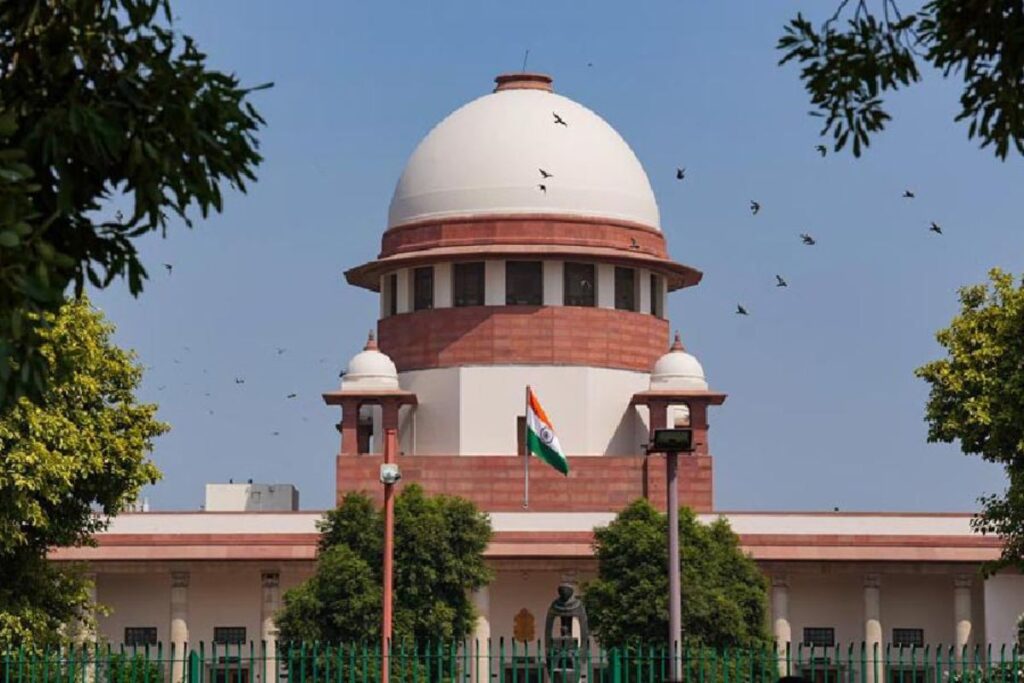Rehan Khan
On 17th September, the Supreme Court of India issued an interim order preventing the use of bulldozers to demolish properties of individuals accused of criminal activities without first obtaining the Court’s permission. This ruling comes as part of a series of petitions filed in response to what has been dubbed ‘bulldozer justice,’ a practice where properties are demolished as an extrajudicial punitive measure against those allegedly involved in crimes.
The Division Bench of Justice BR Gavai and Justice KV Viswanathan emphasized that this interim order will remain in effect at least until October 1, 2024, when the Court is scheduled to revisit the case. “Till the next date of hearing, we direct that there shall be no demolition anywhere across the country without seeking leave of this Court. We further clarify that our order would not be applicable if there is an unauthorized structure in any public place such as a road, street, footpath, abutting railway line or any river body or water bodies, and also to cases where there is an order for demolition made by a Court of law.”
This ruling, however, does not extend to instances where demolitions are necessary to remove unauthorized structures from public spaces such as streets, railway lines, and water bodies. The Court maintained that demolitions in these cases can proceed as long as they adhere to the established legal procedures for dealing with illegal construction.
Solicitor General of India Tushar Mehta expressed strong objections to the Court’s interim order, arguing that it interferes with the statutory duties of authorities across the country. He contended that a “false narrative” was being built around the notion that these demolitions were illegal and primarily targeted at a specific community. “Give us instances, we will give answers on how it was not illegal demolitions. We have to demolish all outside narratives… Let them bring one instance of illegality,” Mehta argued, stressing that affected individuals do not come forward because they know the demolitions were carried out legally.
Despite these protests, the Court remained firm. Justice Gavai noted, “Till (October) 1st you can stay your hands?” indicating that halting demolitions for a short period would not lead to significant consequences. Justice Viswanathan further added, “Heavens will not fall if illegal demolitions are stayed in the interim.”
During the hearing, Senior Advocates CU Singh and MR Shamshad, representing the petitioners, opposed the Solicitor General’s stance, emphasizing that the practice of bulldozer demolitions was still ongoing and the issue was of significant concern. They pointed out that the demolitions targeted specific individuals accused of crimes without any legal basis for the action, underscoring the need for a judicial intervention to halt these practices.
In response to concerns raised by the Solicitor General regarding the narrative that a particular community was being targeted, Justice Viswanathan clarified that the Court was not swayed by any outside influences. “Outside noises not influencing us. We won’t get into the question of which community… at this point. Even if there is one instance of illegal demolition, it is against the ethos of the Constitution,” he remarked, reiterating that the Court’s focus was on ensuring that demolitions are conducted in accordance with legal procedures.
The Court’s interim order follows a series of hearings where the Bench expressed concerns over the increasing trend of state governments demolishing properties as punitive measures without following due process. The petitions, some of which were filed as early as 2022, argue that these demolitions violate fundamental rights, particularly the right to a home, which is an integral aspect of the right to life under Article 21 of the Constitution.
In previous hearings, the Court had indicated its intent to lay down guidelines for the regulation of such demolitions to prevent the misuse of power. During the proceedings, Justice Gavai remarked, “The executive cannot be the judge while carrying out bulldozer justice,” signaling the Court’s disapproval of the arbitrary exercise of demolition powers by the authorities. Furthermore, Justice Viswanathan pointed out that even a single instance of illegal demolition would be unconstitutional. (attach article link)
The Court has also sought suggestions from various parties on how to frame these guidelines. Notably, Jamiat-Ulama-I-Hind had submitted its recommendations, seeking to ensure that demolition drives are not misused as tools of extrajudicial punishment.
Case Title: Jamiat Ulama I Hind vs. North Delhi Municipal Corporation
Case Number: Writ Petition (Civil) No. 295 of 2022
Bench: Justice BR Gavai and Justice KV Viswanathan

